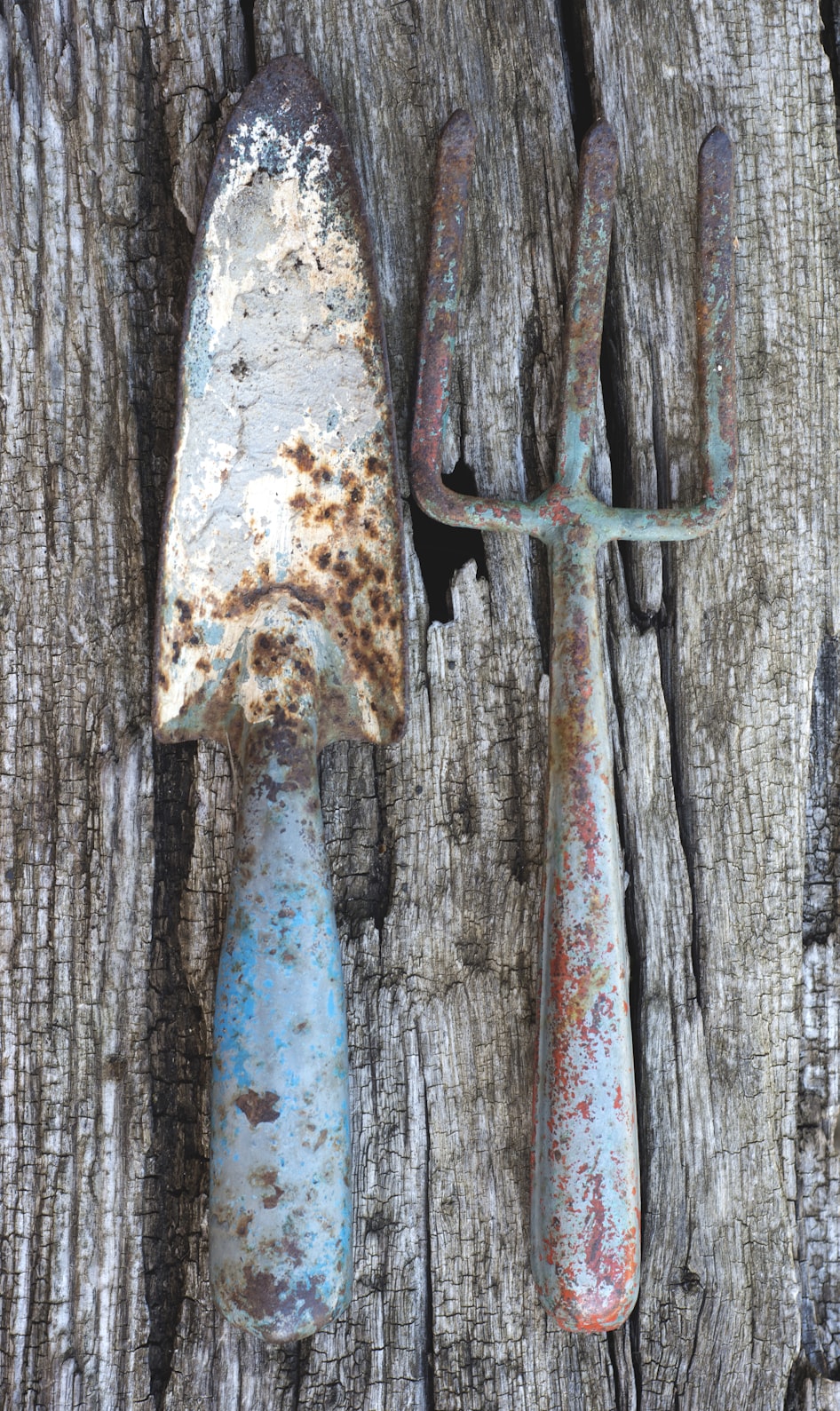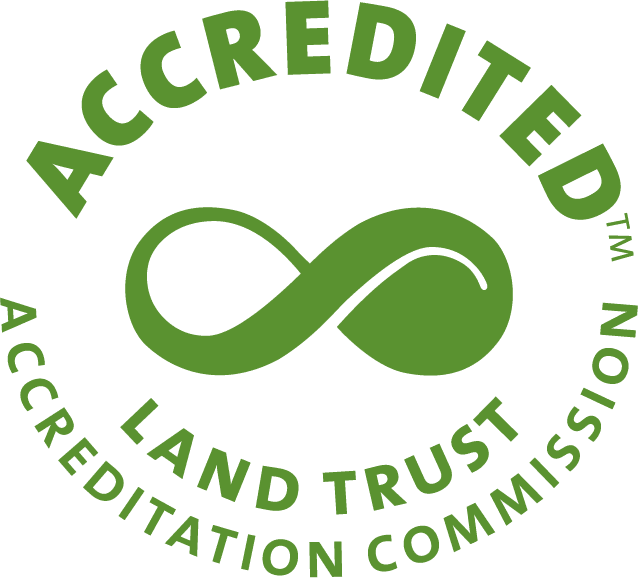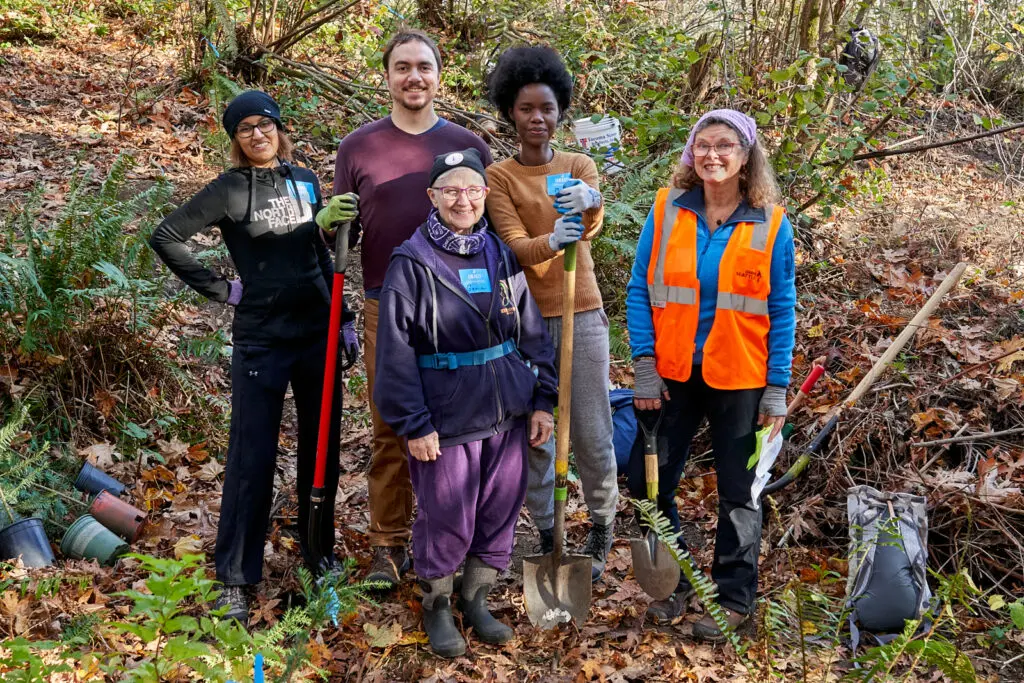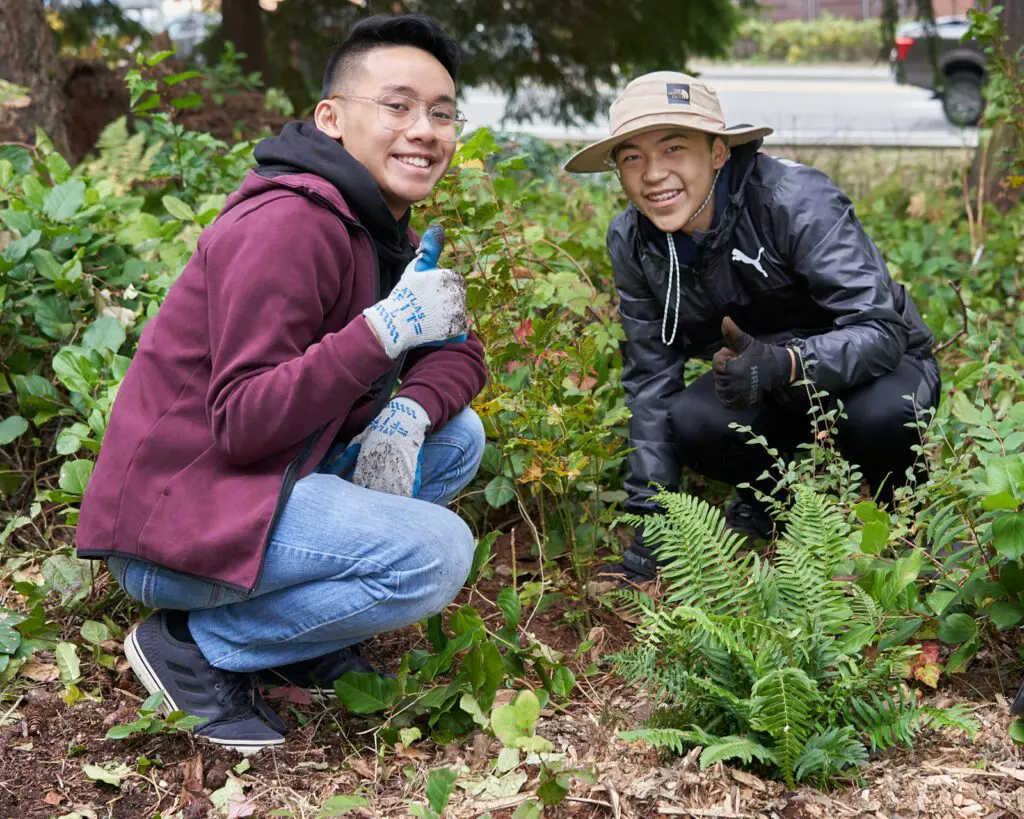Green Cities Toolbox
The Green Cities Toolbox is a collection of resources for city staff, restoration practitioners, and volunteers engaged in community-based stewardship of urban forested parklands and natural areas. Topics include restoration best management practices and planning tools, information on native and invasive plants, as well as engaging and working with volunteers.

Restoration planning & implementation
Tools and expertise to plan and implement restoration at the park or site-level. Includes step-by-step guides for site planning, best management practices (BMPs) for invasive plant removal, native plant installation, mulching, and maintenance.
The Urban Forest and Natural Area Stewardship Planning Guide
Topical step-by-step guide on creating a comprehensive site- or park-scale restoration plan that outlines short- and long-term management goals and strategies. Includes additional resources on restoration BMPs.
The Steward Annual Plan Workbook is specifically geared toward Green City volunteer stewards to assist them in developing an annual work plan for specific restoration sites within a park or natural area.
Using native plants for process-based restoration in the urban environment
Presentation courtesy of Justin Howell, Applied Ecology LLC
Sound Native Plants Fact Sheets
Fact sheets ranging from evaluating plant health before planting to weed control methods.
Calculating square footage and cubic yards at your site
Helpful in determining the area of a restoration site to aid in determining the number of plants and the yards of mulch needed
Instructional videos
The following videos have more useful information about urban forest and natural area restoration. If you have something you’d like to see here, let us know!
- How to Compost On-site, by the Washington Conservation Corps crew
- Tree Planting by Tree People in Santa Monica, CA (note: Green City Partnerships do not use the gopher cages demonstrated here, but this video still has some great information, especially regarding tool safety and tree
Native plants
Native plant identification and propagation resources such as image libraries, keys, databases, and how-to guides.
Green Cities Steward Plant Guide
A collection of native plant palettes for use in a variety of planting projects, in addition to some of our most common invasive plants. This can be a guide for beginners just learning to identify Northwest plants, and a reference for those seeking plants for specific locations.
Washington Native Plant Society (WNPS) Starflower Resources
Materials include hands-on activities, native plant identification cards, weed identification cards, and informational posters.
A comprehensive collection of photos and information on plants and lichens of Washington.
This site features a native plant guide, how-to articles, and other helpful resources.
The database provides information about vascular plants, mosses, liverworts, hornworts, and lichens found in the US.
Grow Your Own Native Landscape
A how-to guide for the propagation and salvage techniques of Pacific Northwest native plants.
Green Cities Native Plant Propagation Field Guide
This guide includes 32 plants commonly used in our restoration projects and provides information about best season to propagate, best propagation method and images to aid in field identification. The guide is designed to be printed on loose leaf Rite-in-the-Rain 8 ½” X 11” paper, pre-perforated to 4 5/8” X 7” to fit in Rite-in-the-Rain field binders, though it can be printed on two sides, cut and staple-bound. For more information contact greencities@forterra.org.
(Ob)noxious weeds
Resources on the identification and management of aggressive non-native plants and insects.
Green Cities Steward Plant Guide
A collection of native plant palettes for use in a variety of planting projects, in addition to some of our most common invasive plants. This can be a guide for beginners just learning to identify Northwest plants, and a reference for those seeking plants for specific locations.
This website is full of resources to help identify and manage noxious weeds. There are also educational booklets, events, and classroom presentations to educate yourself about the harmful effects of each noxious weed.
Washington Noxious Weed Identification Tool
This is a great tool to identify possible noxious weeds based on a few parameters like the plants leaf structure and where it commonly grows.
King County Noxious Weed Best Management Practices
This site has “Best management practice” documents listed for each noxious weed species, and talks about cover impacts, history, identification, reproduction and spread, local distribution, and control methods, disposal guidelines and references for further information.
Washington Native Plant Society (WNPS) Starflower Resources
Materials include hands-on activities, native plant identification cards, weed identification cards, and informational posters.
A comprehensive collection of photos and information on plants and lichens of Washington.
The database provides information about vascular plants, mosses, liverworts, hornworts, and lichens found in the US.
Restoration monitoring
Protocols and instructions for implementing short- and long-term monitoring of restoration sites.
Regional Standardized Monitoring Protocols
In order to understand the success, value, and effectiveness or our restoration activities, the Green Cities have implemented a set of Standardized Monitoring Protocols. These protocols lay out data collection procedures that can be replicated over time to measure change at restoration sites. Contact your partnership coordinator to learn more about how you can get involved! You can also email forestmonitoring@earthcorps.org to learn about training and volunteer opportunities.
Community engagement & volunteer management
Best practices for engaging youth, families, and diverse communities in stewardship activities as well as tips for recruiting, managing, and retaining volunteers and running successful community restoration events.
Green Cities Community Engagement Guide
A best practices guide to implementing engagement strategies that achieve social equity and inclusion; focuses on reaching out to those communities typically underserved in the field of conservation as well as to youth and families. Contact the Green Cities Program for additional information: greencities@forterra.org.
Volunteer Management for the 21st Century
Presentation courtesy of Rick Lynch, Lynch Associates.
Instructional Video – Volunteer Management
You will need to register (simply enter your name and an email address) to view the video.
Tree Care Pamphlets
These pamphlets were created to share information on tree care with the community in multiple languages (Spanish, Hindi, Cantonese Chinese, Mandarin Chinese, Russian, and English). Puget Sound residents can help expand our urban forest by planting trees in their own yards and in planting strips as appropriate. Proper planting technique and follow-up care are essential to making sure trees thrive in our cities!
Site safety
Information on Crime Prevention Through Environmental Design (CPTED) and other safety issues to consider in community-based stewardship.
The Urban Forest and Natural Area Stewardship Planning Guide
Planning GuideFor additional information on CPTED in the context of restoration planning and plant selection, see page 37.
Forest Steward Resources
Handbook for all Forest Stewards that includes introduction to the role, overview of restoration phases, guidelines for running events, how to plan annual projects, and restoration and measurement tips.
Pacific Northwest Winter Twig ID
A guide created by the Green City Partnerships to be used by Forest Stewards. This guide explains how to identify native plants in the winter.
Tools and expertise to plan and implement restoration at the park or site-level. Includes step-by-step guides for site planning, best management practices (BMPs) for invasive plant removal, native plant installation, mulching, and maintenance.
The Urban Forest and Natural Area Stewardship Planning Guide
Topical step-by-step guide on creating a comprehensive site- or park-scale restoration plan that outlines short- and long-term management goals and strategies. Includes additional resources on restoration BMPs.
The Steward Annual Plan Workbook is specifically geared toward Green City volunteer stewards to assist them in developing an annual work plan for specific restoration sites within a park or natural area.
Using native plants for process-based restoration in the urban environment
Presentation courtesy of Justin Howell, Applied Ecology LLC
Sound Native Plants Fact Sheets
Fact sheets ranging from evaluating plant health before planting to weed control methods.
Calculating square footage and cubic yards at your site
Helpful in determining the area of a restoration site to aid in determining the number of plants and the yards of mulch needed
Instructional videos
The following videos have more useful information about urban forest and natural area restoration. If you have something you’d like to see here, let us know!
- How to Compost On-site, by the Washington Conservation Corps crew
- Tree Planting by Tree People in Santa Monica, CA (note: Green City Partnerships do not use the gopher cages demonstrated here, but this video still has some great information, especially regarding tool safety and tree
Native plant identification and propagation resources such as image libraries, keys, databases, and how-to guides.
Green Cities Steward Plant Guide
A collection of native plant palettes for use in a variety of planting projects, in addition to some of our most common invasive plants. This can be a guide for beginners just learning to identify Northwest plants, and a reference for those seeking plants for specific locations.
Washington Native Plant Society (WNPS) Starflower Resources
Materials include hands-on activities, native plant identification cards, weed identification cards, and informational posters.
A comprehensive collection of photos and information on plants and lichens of Washington.
This site features a native plant guide, how-to articles, and other helpful resources.
The database provides information about vascular plants, mosses, liverworts, hornworts, and lichens found in the US.
Grow Your Own Native Landscape
A how-to guide for the propagation and salvage techniques of Pacific Northwest native plants.
Green Cities Native Plant Propagation Field Guide
This guide includes 32 plants commonly used in our restoration projects and provides information about best season to propagate, best propagation method and images to aid in field identification. The guide is designed to be printed on loose leaf Rite-in-the-Rain 8 ½” X 11” paper, pre-perforated to 4 5/8” X 7” to fit in Rite-in-the-Rain field binders, though it can be printed on two sides, cut and staple-bound. For more information contact greencities@forterra.org.
Resources on the identification and management of aggressive non-native plants and insects.
Green Cities Steward Plant Guide
A collection of native plant palettes for use in a variety of planting projects, in addition to some of our most common invasive plants. This can be a guide for beginners just learning to identify Northwest plants, and a reference for those seeking plants for specific locations.
This website is full of resources to help identify and manage noxious weeds. There are also educational booklets, events, and classroom presentations to educate yourself about the harmful effects of each noxious weed.
Washington Noxious Weed Identification Tool
This is a great tool to identify possible noxious weeds based on a few parameters like the plants leaf structure and where it commonly grows.
King County Noxious Weed Best Management Practices
This site has “Best management practice” documents listed for each noxious weed species, and talks about cover impacts, history, identification, reproduction and spread, local distribution, and control methods, disposal guidelines and references for further information.
Washington Native Plant Society (WNPS) Starflower Resources
Materials include hands-on activities, native plant identification cards, weed identification cards, and informational posters.
A comprehensive collection of photos and information on plants and lichens of Washington.
The database provides information about vascular plants, mosses, liverworts, hornworts, and lichens found in the US.
Protocols and instructions for implementing short- and long-term monitoring of restoration sites.
Regional Standardized Monitoring Protocols
In order to understand the success, value, and effectiveness or our restoration activities, the Green Cities have implemented a set of Standardized Monitoring Protocols. These protocols lay out data collection procedures that can be replicated over time to measure change at restoration sites. Contact your partnership coordinator to learn more about how you can get involved! You can also email forestmonitoring@earthcorps.org to learn about training and volunteer opportunities.
Best practices for engaging youth, families, and diverse communities in stewardship activities as well as tips for recruiting, managing, and retaining volunteers and running successful community restoration events.
Green Cities Community Engagement Guide
A best practices guide to implementing engagement strategies that achieve social equity and inclusion; focuses on reaching out to those communities typically underserved in the field of conservation as well as to youth and families. Contact the Green Cities Program for additional information: greencities@forterra.org.
Volunteer Management for the 21st Century
Presentation courtesy of Rick Lynch, Lynch Associates.
Instructional Video – Volunteer Management
You will need to register (simply enter your name and an email address) to view the video.
Tree Care Pamphlets
These pamphlets were created to share information on tree care with the community in multiple languages (Spanish, Hindi, Cantonese Chinese, Mandarin Chinese, Russian, and English). Puget Sound residents can help expand our urban forest by planting trees in their own yards and in planting strips as appropriate. Proper planting technique and follow-up care are essential to making sure trees thrive in our cities!
Information on Crime Prevention Through Environmental Design (CPTED) and other safety issues to consider in community-based stewardship.
The Urban Forest and Natural Area Stewardship Planning Guide
Planning GuideFor additional information on CPTED in the context of restoration planning and plant selection, see page 37.
Handbook for all Forest Stewards that includes introduction to the role, overview of restoration phases, guidelines for running events, how to plan annual projects, and restoration and measurement tips.
Pacific Northwest Winter Twig ID
A guide created by the Green City Partnerships to be used by Forest Stewards. This guide explains how to identify native plants in the winter.



